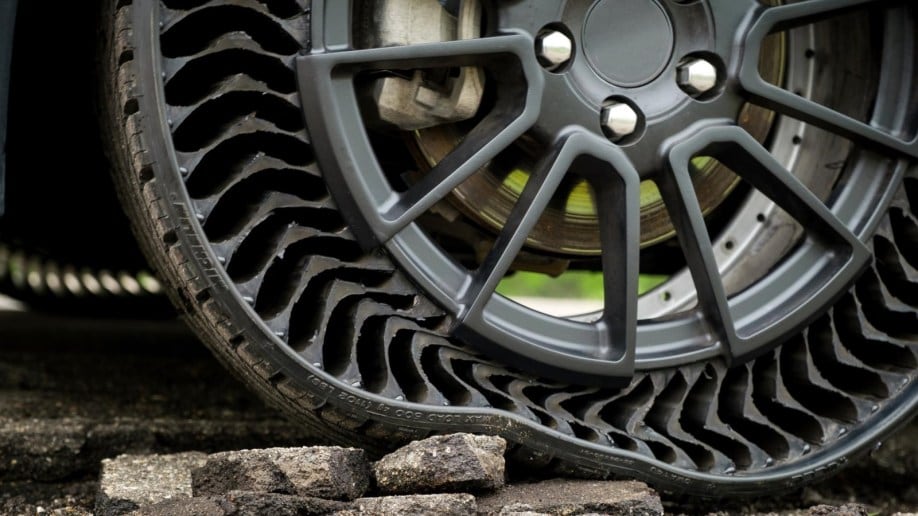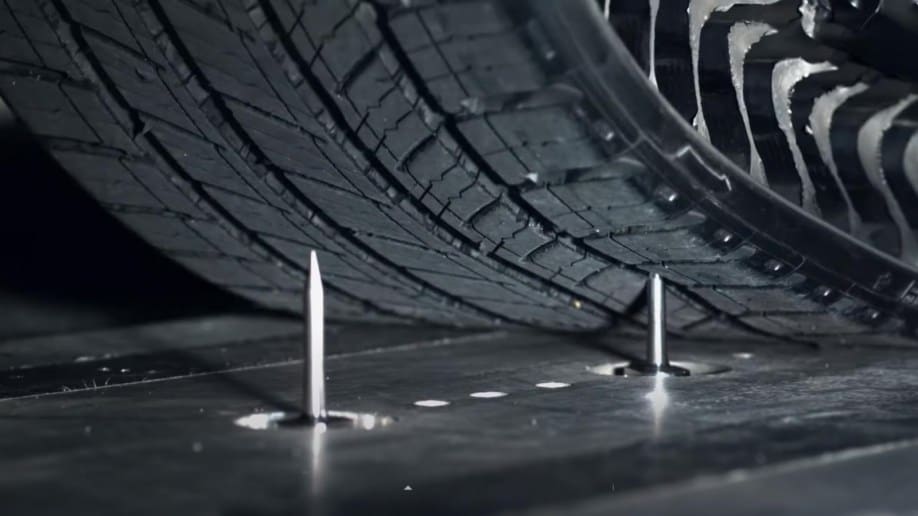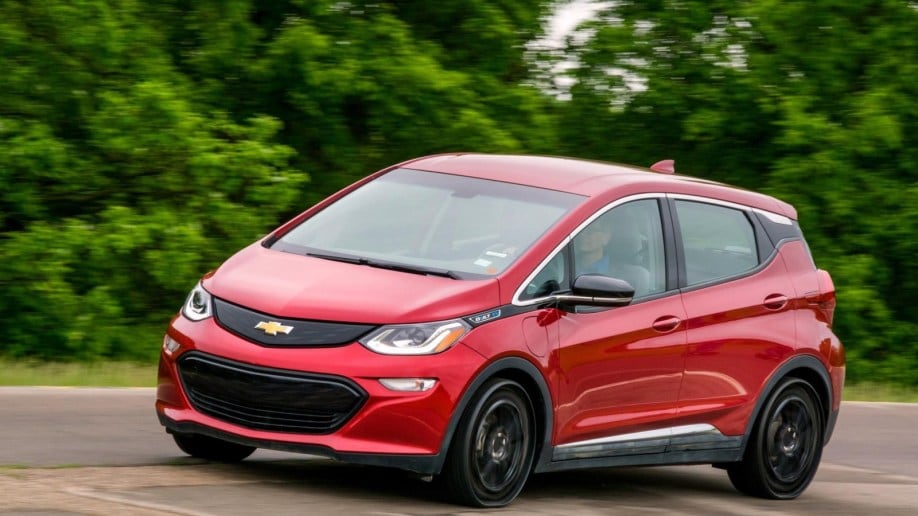
General Motors and Michelin have teamed up to create an airless tire. The pair “aims to introduce it on passenger vehicles as early as 2024.”
Flexible Spokes Instead of Air Pressure
The oldest technology on your car might be the tire. The inflatable rubber tire pre-dates the first car by a few decades. Though modern tires don’t precisely resemble the pneumatic bicycle tire patented in the 1840s, they follow mostly the same principles.
Related: Car Tires Guide – Everything You Need to Know
The Michelin Uptis tire (that’s Unique Puncture-proof TIre System, to the delight of awkward abbreviation fans) uses glass-reinforced plastic spokes to support the tread instead of air pressure. It’s similar to systems developed for use in moon rovers (GM has experience building those).
Fewer Scrapped Tires, No Need for Spares
The idea has enormous implications for both the environment and your wallet. Michelin says it could reduce the number of scrapped tires by at least 20% — both those deemed irreparable after a puncture and those discarded because of wear caused by underinflation.
It could also eliminate the need to carry a spare tire and eliminate accidents caused by blowouts.
Questions Left to Answer
The two companies have some refining to do before the new tires reach your local tire shop (or maybe put it out of business). GM says it “will initiate real-world testing and validation of the Uptis Prototype on a Michigan test fleet of Chevrolet Bolt EVs” this year.
Among the questions left to answer are how the tires work with safety devices like antilock braking systems, how much road noise they create, and whether they’ll be compatible with existing wheel designs.
But the companies have set a target date of selling the tires within three years.









